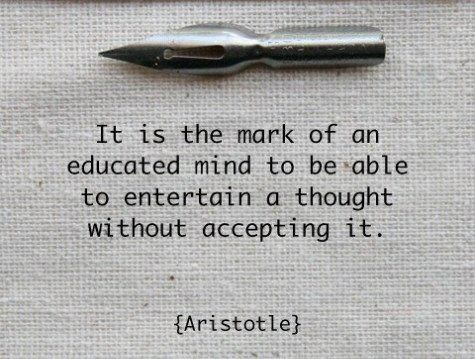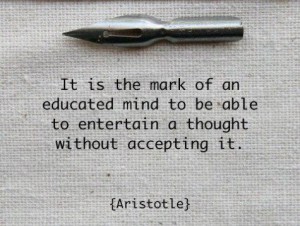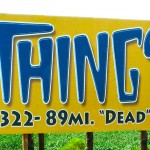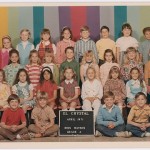We’ve become a world of 0’s and 1’s, coded for speed in decision making, processing, and response. This is true in a literal sense, with algorithms impacting our daily lives in ways we don’t even realize, but also figuratively. We’re emotionally charged, knee-jerk response machines who have evolved the skill and knowledge to create and disseminate information with blinding speed and volume.
But, we have not developed the ability to understand and evaluate that information. What does this have to do with education?
Everything.
The Digital and Information Ages are upon us and experts agree that the skills needed by our workforce have changed dramatically. A recent study from Oxford predicts 25% unemployment as a realistic possibility within a couple of decades – with 47% of all current jobs becoming obsolete due to software automation and robotics. Unlike prior economic and societal revolutions, there are no parallel jobs for the displaced workers of the Digital Age; a textile maker could often relearn a different manual skill to become a machinist, but it is yet to be determined how successfully a displaced machinist can become a coder or information systems specialist.
In response to this, schools are plunging into STEM training by adding curriculum and opportunities for students. To be clear, I applaud and strongly encourage these efforts. However, I do have a word of caution.
Learning to create and manage information is a worthwhile task. Learning to evaluate that information as a consumer is critical one.
In our haste to create a STEM supportive world, I suggest we don’t become so enamored that we fail to recognize the need for a second revolution: a return to classical and intensive logic instruction. Logic, debate, and other components of a liberal education provided scaffolding for our civilization and was established by the likes of Aristotle, built upon during the Enlightenment, and used as the driving force by the Founding Fathers in the design of this nation.
I’m afraid that it’s being lost in a sea of misinformation and binary.
I propose a parallel trend to our STEM efforts that features and measures actual thought. Contrary to popular belief, there are established templates for reason and logic to help us determine truth from fiction, information from misinformation, and to help make decisions based upon informed analysis.
There is a great deal of conversation about how we can inoculate ourselves from nefarious influence when we pull a voting lever, how to separate fact from fiction, and how to eliminate “fake news” from our world of social media and instant news. There is an implication that it’s up to the programmers to figure out how to prevent hacks and filter false information. I disagree; it’s our responsibility as citizens to know how to deal with the inevitable deluge of purposeful and misleading information. It’s a toolbox that is a available to us all, but it’s our society’s job to re-embrace the foundations of western thought. Hopefully, we’ll be producing programmers at an incredibly rapid rate, but it’s even more important that we nurture thinkers who decide the meaning of that code.
After all, information is not automatically truth, and we are only as vulnerable as we allow ourselves to be.











Comments 5
Timely reflection! I like your metaphor (and pointed reality) of being binary.
Thank you! As Amethyst said, this is timely. I love this: “Contrary to popular belief, there are established templates for reason and logic to help us determine truth from fiction, information from misinformation, and to help make decisions based upon informed analysis.” We need more attention on this–across society, not just for our students.
Oh, Mike, please read The Math Myth: and Other STEM Delusions by by Andrew Hacker. He makes your points exactly and provides tons of research to support his findings. You might have read his NY Times piece, Is Algebra Necessary at http://nyti.ms/2k6kjLD
Thanks for sharing this piece Mike. Concise and to the point. Words to live by –
“Learning to create and manage information is a worthwhile task. Learning to evaluate that information as a consumer is critical one.”
Mike I loved this piece because I think you touch upon something very important, and that is we now have the ability to acquire and manage mass quantities of information- yet we are lacking the ability to make meaningful decisions with that information. I still dream of the day we live in a society like Star Trek, where the pursuit of knowledge and truth drive our culture to better itself. I too believe that balance is the key to preventing idiocracy… I hope logic once again becomes a part of our civilization.